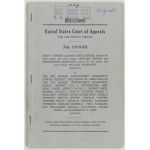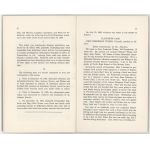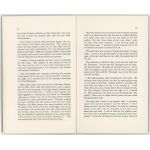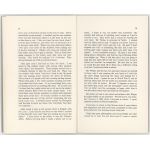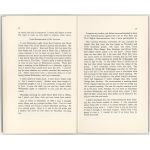Testimony of John Tinker in Tinker v. Des Moines
7/25/1966
Add to Favorites:
Add all page(s) of this document to activity:
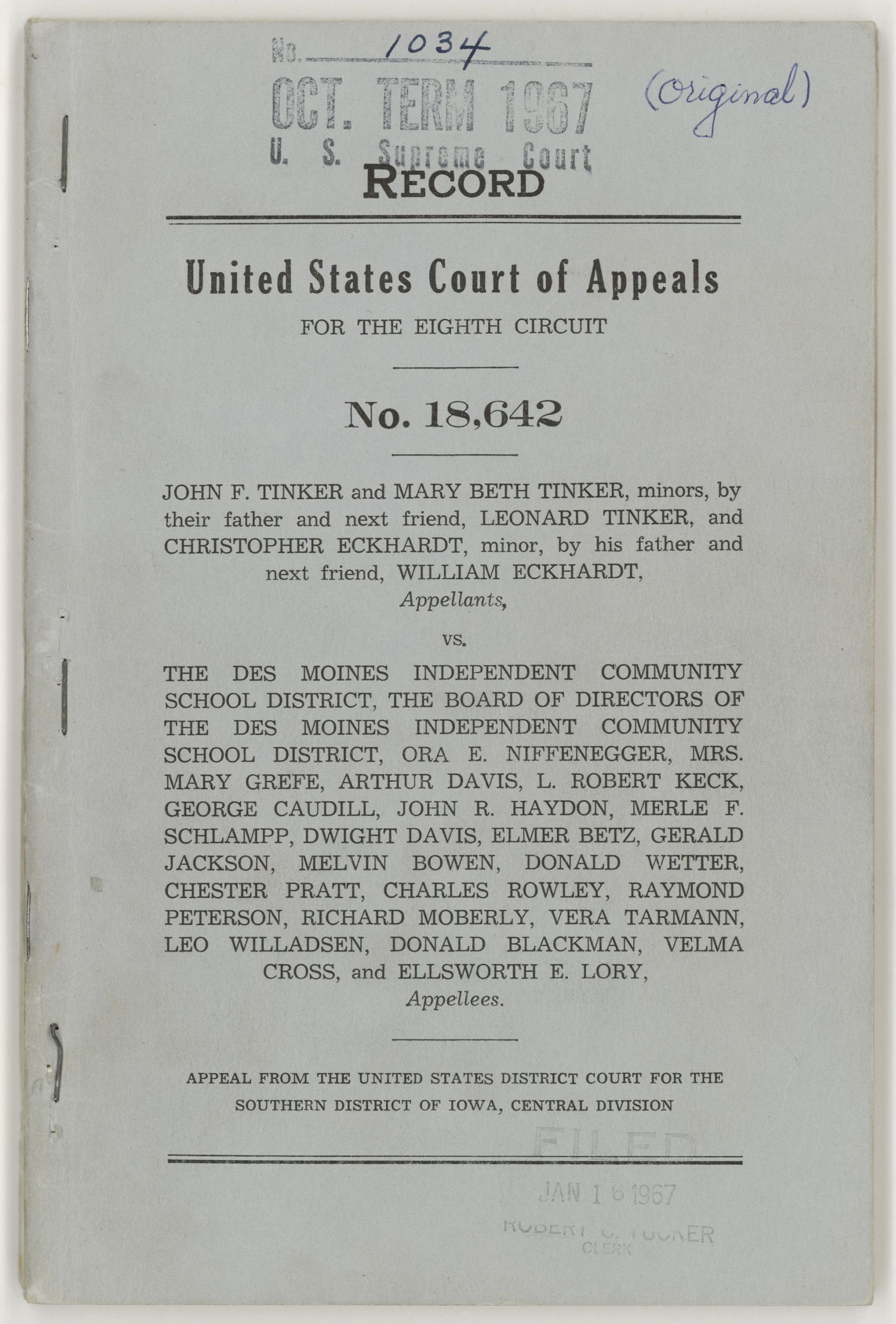
Add only page 1 to activity:
Add only page 2 to activity:
Add only page 3 to activity:
Add only page 4 to activity:
Add only page 5 to activity:
In 1966, a group of public school students in Iowa wore black armbands to school as symbols of mourning and hope for an end to the Vietnam War. John and Mary Beth Tinker and Christopher Eckhart weren’t surprised when they were suspended—the school had just created a policy banning the armbands. But they did not expect that their case would result in a landmark Supreme Court decision. In 1969 the Supreme Court ruled that students don’t "shed their constitutional rights to freedom of speech or expression at the schoolhouse gate."
This is a record of John Tinker’s testimony in the appeal of the district court's decision. Although the appeals court upheld the school’s rule banning the armbands, the Supreme Court ultimately ruled that fear of disruption was not grounds for barring speech.
This is a record of John Tinker’s testimony in the appeal of the district court's decision. Although the appeals court upheld the school’s rule banning the armbands, the Supreme Court ultimately ruled that fear of disruption was not grounds for barring speech.
This primary source comes from the Records of the Supreme Court of the United States.
National Archives Identifier: 5641613
Full Citation: Testimony of John Tinker in Tinker v. Des Moines; 7/25/1966; Case File for John Tinker v. Des Moines; Appellate Jurisdiction Case Files, 1792 - 2010; Records of the Supreme Court of the United States, Record Group 267; National Archives Building, Washington, DC. [Online Version, https://www.docsteach.org/documents/document/testimony-john-tinker, April 27, 2024]Activities that use this document
- The First Amendment
Created by the National Archives Education Team
Rights: Public Domain, Free of Known Copyright Restrictions. Learn more on our privacy and legal page.



